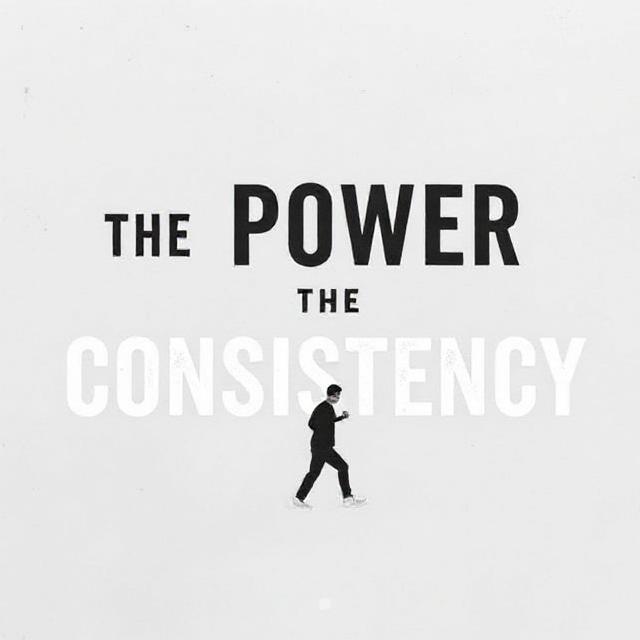
In today’s world, our minds are constantly overloaded with notifications, responsibilities, and endless digital noise. Most people wake up and immediately reach for their phones, jumping straight into a cycle of distraction and stress. As a result, focus becomes difficult, thoughts feel scattered, and even simple tasks feel heavy. That’s where mindfulness comes in — not as a complicated spiritual concept, but as a simple daily practice to bring your mind back into control.
Mindfulness means being present, aware, and calm in the current moment. It teaches you to slow down your thoughts, reduce mental chaos, and reclaim control of your focus and emotions. The best part? You don’t need expensive tools or long meditation sessions — just a few daily mindful habits can dramatically transform your clarity and peace of mind.
Why Mindfulness Matters More Than Ever in 2025
We live in a time where attention has become the new currency. Everybody is multitasking, switching between apps, and constantly waiting for the next distraction. This creates mental burnout, stress, and lack of focus.
Mindfulness challenges that pattern by teaching your brain to:
- Stay calm even in chaos
- Respond instead of react emotionally
- Focus deeply without being distracted
- Release overthinking and mental tension
The goal is not to empty your mind, but to guide it gently back to the present moment whenever it drifts.
1. Start Your Day with One Minute of Stillness
You don’t need a 30-minute meditation session to feel calm. Just one minute of mindful breathing after waking up sets the tone for the entire day.
How to Do It
- Sit comfortably or stay lying down.
- Place one hand on your chest.
- Inhale slowly for 4 seconds, hold for 2 seconds, exhale for 4 seconds.
- Feel your breath instead of rushing into your phone or thoughts.
This simple act tells your brain, “I am in control today.”
2. Practice Mindful Eating Instead of Rushing
Most people eat while scrolling on their phones or thinking about their to-do lists. This leads to mindless habits, stress eating, and lack of satisfaction.
Mindful Eating Guide
- Before taking the first bite, pause and take a deep breath.
- Chew slowly, observing the taste and texture.
- Avoid screens for the first five minutes of your meal.
- Let eating be a moment of awareness, not a rushed task.
This reduces stress and improves digestion while training your brain to remain present.
3. Use “Single Tasking” Instead of Multitasking
Multitasking feels productive, but it breaks your focus and increases mental fatigue. Mindfulness encourages single-tasking — fully focusing on one task without dividing your attention.
Here’s a Simple Practice
- Choose one task — writing, reading, cleaning, working.
- Set a 10 or 15-minute timer.
- Do only that task — no switching, no checking phone.
- When distraction arises, gently guide your attention back.
Practicing this daily rewires your brain to stay focused and finish tasks faster.
4. Ground Yourself with “5 Senses Awareness”
Whenever you feel stressed, anxious, or overwhelmed, do this quick mindfulness reset.
5-Senses Mindfulness Exercise
Stop and notice:
- 1 thing you can see clearly
- 1 thing you can hear
- 1 thing you can touch
- 1 thing you can smell
- 1 deep breath you can feel entering your body
This technique signals to your brain that you are safe and present, reducing stress instantly.
5. Slow Breathing Technique for Instant Calm
Whenever stress hits, most people start breathing fast without knowing it. Slow breathing activates your nervous system to relax.
Try the 4-6 Breathing Method
- Breathe in slowly for 4 seconds
- Exhale gently for 6 seconds
- Repeat for one minute
Just one minute can reduce stress hormones and restore mental clarity.
6. Take “Micro Mindfulness Breaks” During the Day
You don’t need a long break — 30-second mindful pauses throughout the day are enough to refresh your mind.
How to Apply
- Every time you switch tasks, pause and take one deep breath
- Before replying to a message, breathe mindfully once
- Stop randomly during the day and notice how your body feels
These micro resets prevent mental burnout and keep your focus fresh.
7. Mindful Journaling to Clear Mental Noise
Writing your thoughts is one of the most powerful mindfulness practices. It helps you release mental clutter and gain clarity.
Simple Mindful Journaling Prompt
Ask yourself:
- “What am I feeling right now?”
- “What is making my mind busy?”
Answer without judgment. This helps you become aware, observant, and mentally lighter.
8. Practice Gratitude with Awareness
Gratitude is not just about listing good things. Mindful gratitude means fully feeling appreciation, even for small moments.
How to Do It
- Before sleeping, think of one small moment that felt good today — a laugh, a warm drink, a calm moment.
- Pause and feel that moment fully instead of rushing to the next thought.
This builds emotional balance and reduces anxiety.
How Mindfulness Rewires the Brain
Science proves that consistent mindfulness:
- Reduces stress hormones like cortisol
- Improves focus by strengthening prefrontal cortex activity
- Increases self-control and emotional stability
- Helps break patterns of overthinking and reaction
You don’t have to be perfect. Mindfulness is simply the act of returning — again and again — to the present moment.
Creating a Daily Mindfulness Routine
| Time of Day | Practice | Duration |
|---|---|---|
| Morning | 1-minute mindful breathing | 1 min |
| Meal Time | Mindful first five bites | 2 mins |
| Work/Study Time | Single-tasking practice | 15 mins |
| Afternoon | 5-senses awareness reset | 1 min |
| Night | 1 gratitude reflection | 2 mins |
Total time: Less than 10 minutes daily — yet life-changing.
Final Thoughts
Mindfulness is not about becoming a monk or meditating for hours. It’s about small moments of awareness that slowly teach your brain how to stay calm, focused, and present. When you are mindful, stress doesn’t control you — you control your response to stress. And that’s real freedom.
You don’t need to escape life to find peace. You just need to return to the present moment — again and again. Start small, stay consistent, and let mindfulness shape a calmer, more focused version of you.
Read more about: Best Free AI Tools to Boost Productivity



